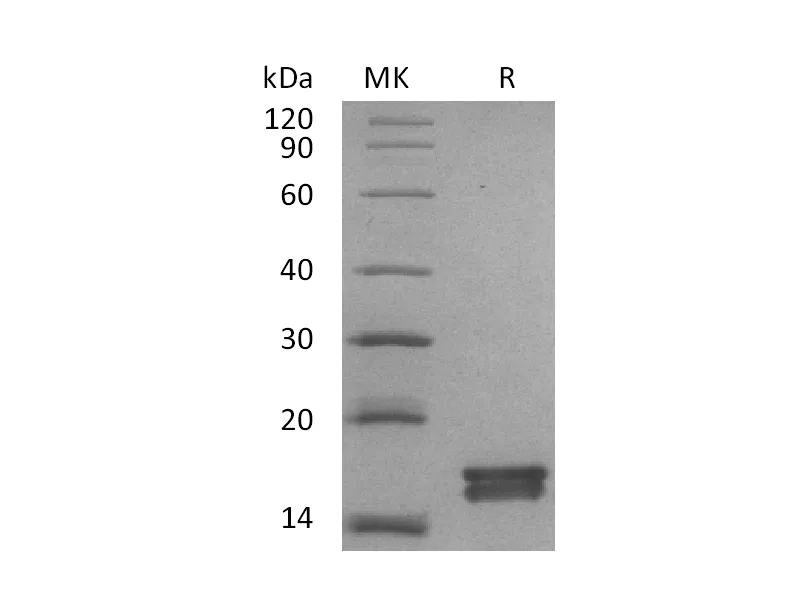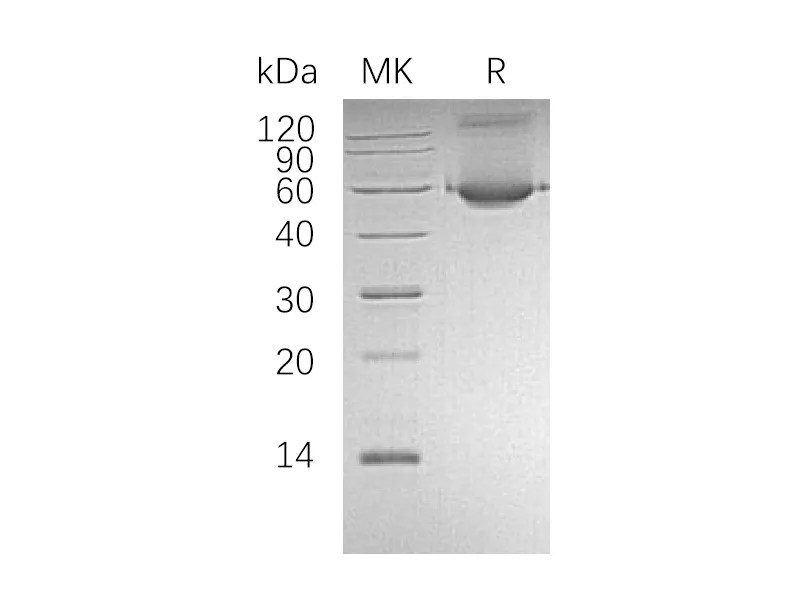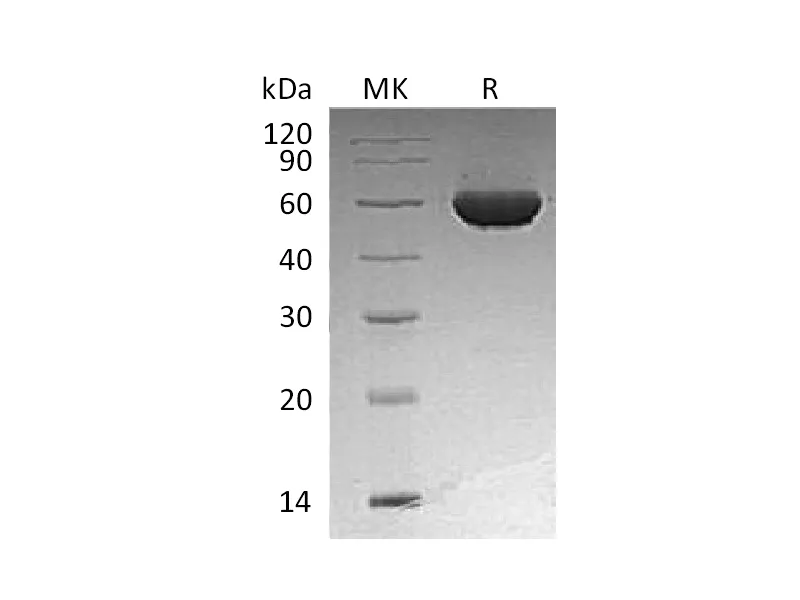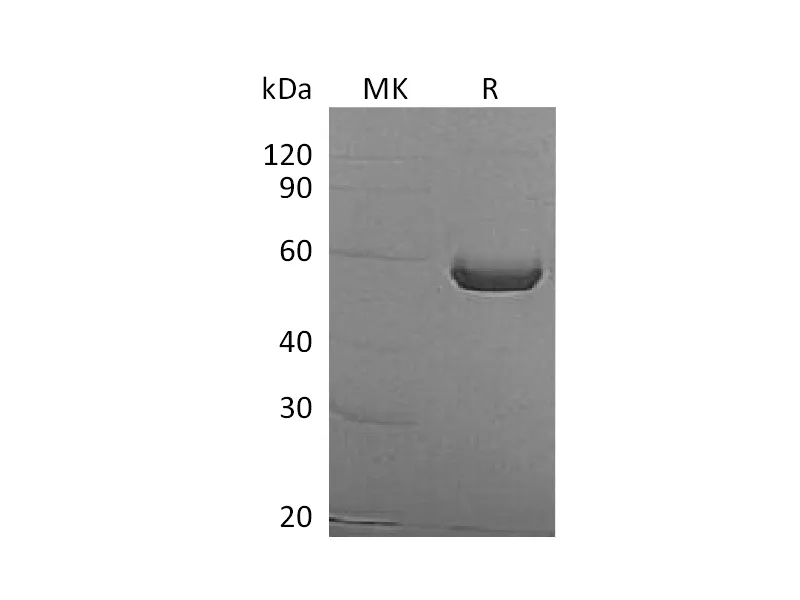Alternative Names
Complement factor H; Protein beta-1-H; CFH
Background
Complement factor H(CFH) is a 155 kDa glycoprotein that functions as a cofactor in the inactivation of C3b by factor I. It also increases the rate of dissociation of the C3bBb complex (C3 convertase) and the (C3b)NBB complex (C5 convertase) in the alternative complement pathway. CFH expressed by the liver and secreted in plasma. This recombinant protein corresponds to SCR15-20 which encompass the primary binding sites for heparin and C3b as well as for the peptide hormone adrenomedullin. Within SCR15-20, mouse Factor H shares 60% and 80% amino acid sequence identity with human and rat Factor H, respectively. Dozens of mutations clustered in SCR15-20 are associated with atypical hemolytic uremic syndrome, a disorder characterized by anemia, thrombocytopenia, and renal failure.
Note
For Research Use Only , Not for Diagnostic Use.




